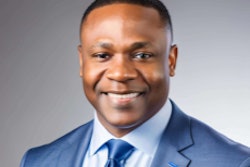Dr. Margaret Price’s life and work twine about the experiences of people with disabilities in higher education.
“My aim is to help dismantle injustices and build forward from the present structures of academe through recognition of what is true now,” says Price, an associate professor of English at The Ohio State University, where she also serves as director of the Disability Studies Program.
 Dr. Margaret Price
Dr. Margaret Price
“We must recognize how academic practices of ‘access’ become so destructive, and where we want to go instead,” she wrote. “The theory of crip spacetime is my attempt to help explain that difficult question.”
Crip Spacetime draws upon a mixed-methods study of over 250 disabled faculty and staff members.
“The book’s main finding — which is also one key to addressing issues of access in higher education — is that an individualized system of accommodation will always lead us further away from sustainable access,” says Price.
The professor recounts that, through self-discovery, she learned that not all disabilities are visible and, likewise, not all necessary accommodations can be predictable or prescribed.














